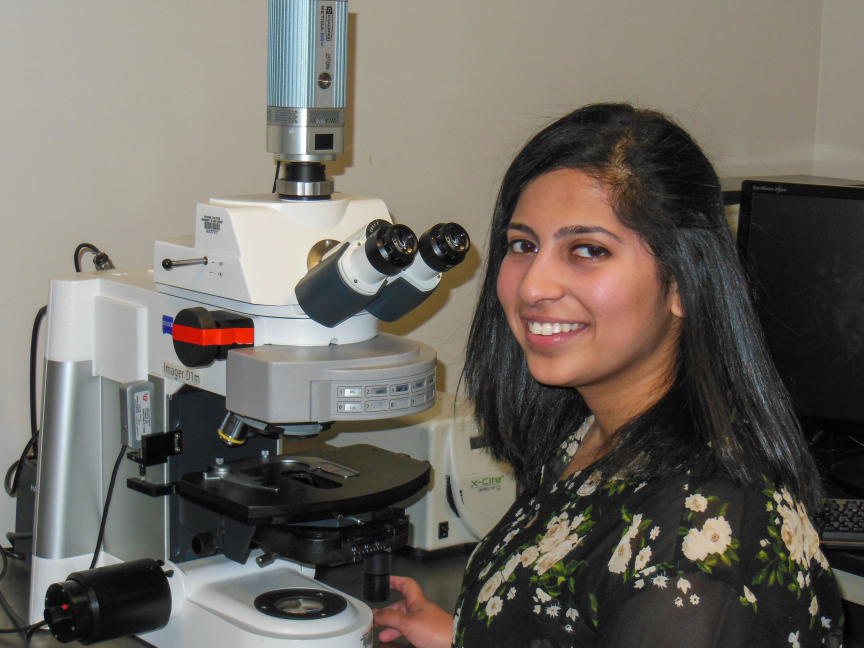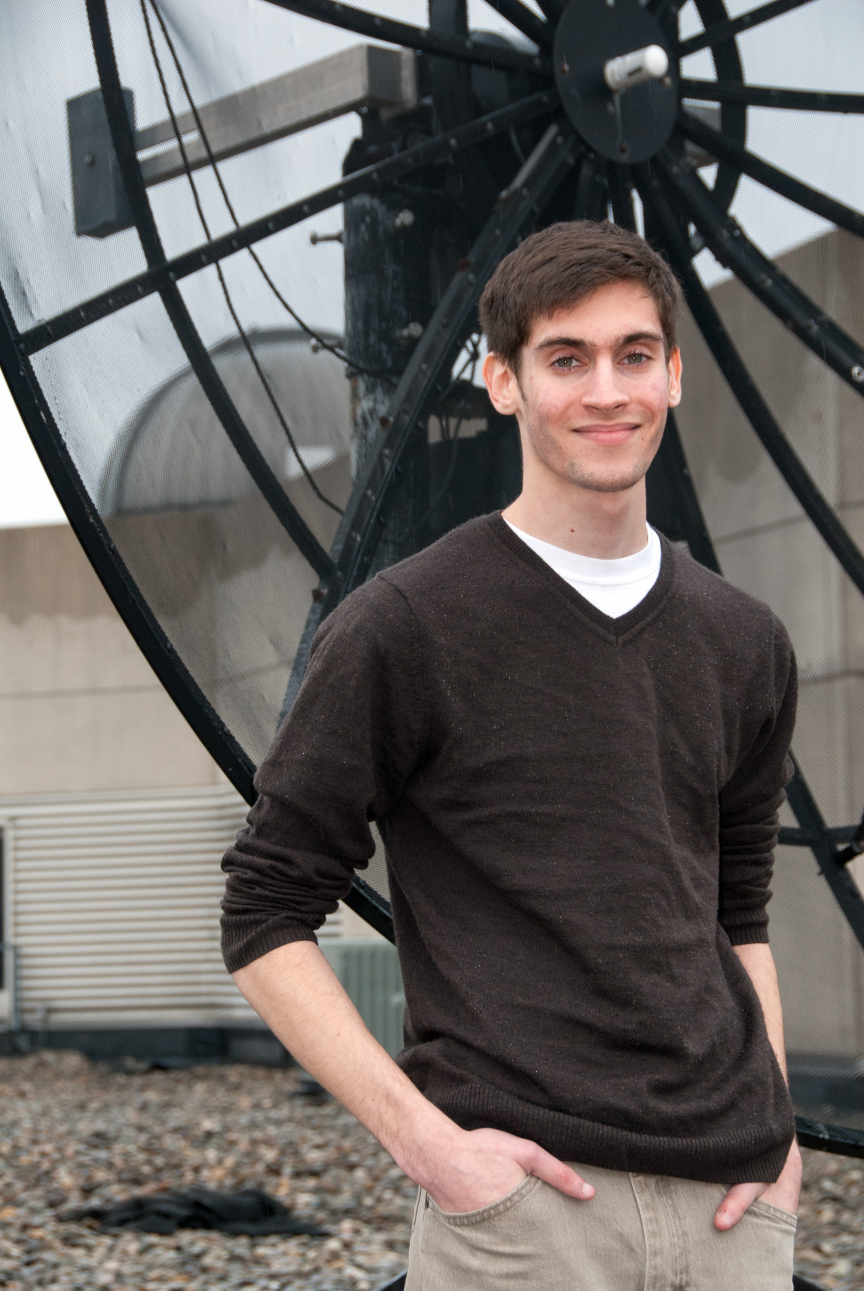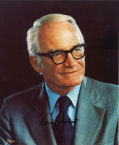Astrophysics, genetics and molecular biology and biochemistry majors perform research in galaxy evolution, nerve cell reshaping and protein modeling
NEW BRUNSWICK, N.J. – The research accomplishments and stellar academic records of three Rutgers students have earned them prestigious Barry M. Goldwater Scholarships, awarded for excellence in mathematics, science and engineering.
Juniors Kaiser Loell of Maplewood, Alina Rashid of Edison and Asher Wasserman of Aberdeen are among 283 undergraduates selected by the Barry M. Goldwater Scholarship and Excellence in Education Foundation to receive awards this year. All are students in the School of Arts and Sciences at Rutgers. They were among more than 1,166 students nominated by their college and university faculties nationwide. The scholarships cover educational expenses up to $7,500 per year for each winner’s remaining one or two years of college.
According to the foundation, Goldwater scholars often garner the attention of prestigious post-graduate fellowship programs, such as the Rhodes, Marshall and Churchill scholarships and awards.
Along with outstanding academic performance, all of the students include advanced research in their undergraduate experience. Loell is making 3-D models of proteins and using them to simulate protein interactions. Rashid is studying how nerve cells reshape themselves when stressed. And Wasserman is studying the evolution of galaxies in space.
Kaiser Loell is looking at ways that proteins interact because of their geometrical shapes or electrical forces. Understanding these interactions helps scientists design synthetic proteins and biomaterials that can lead to new drug therapies and medical treatments. Loell’s use of 3-D printing provides an alternative to computer simulations, which require large amounts of computer time and may not be as intuitive as physical models.
“I’ve been interested in science for about as long as I can remember,” said Loell, who became intrigued early on by the huge variety of molecular structures that biochemists and organic chemists study. He is majoring in molecular biology and biochemistry with minors in mathematics and chemistry, and is working with Vikas Nanda, an associate professor of biochemistry and molecular biology in the Robert Wood Johnson Medical School and a member of the Center for Advanced Biology and Medicine. Earlier Loell studied the evolution of proteins in highly acidic environments to better understand how they function and is now working with Nanda to publish the results of that work.
Loell plans to pursue doctoral studies after he graduates from Rutgers.

Alina Rashid does research that may help scientists learn more about how the human nervous system responds to stress. Working with microscopic worms, she observes how cells that process and transmit signals in the worm’s nervous system dramatically reshape themselves under stress. She and her collaborators have also found genetic mutations that can disrupt this reshaping process, where fine branches form along parts of the cell that receive signals from other nerve cells.
Rashid first studied genetic mutations and their DNA sequences in advanced placement biology at Edison’s John P. Stevens High School. She started working with Maureen Barr, professor of genetics, after taking an introduction to research class during her first year at Rutgers. She is the first member of her family to pursue a scientific field.
“My family has been supportive,” Rashid said. “They are excited and happy that I got this scholarship.” In addition to research and studies, she is treasurer of the Association of Undergraduate Geneticists, a student group that hosts talks by professionals and raises funds for foundations that support research and treatment of genetic disorders. Rashid plans to pursue doctoral studies in genetics or neurobiology after graduating from Rutgers, and then a research career.

Asher Wasserman says he’s like most people who look into the night sky, appreciate its mystery and want of make sense of it. “It’s about being able to answer questions on why the world works as it does on the biggest scale,” he said of his research, examining how certain elliptical galaxies may be on an evolutionary path to becoming spiral galaxies like our own Milky Way.
Wasserman works with Andrew Baker, professor of physics and astronomy, and is double-majoring in astrophysics and mathematics. He is examining data gathered from radio telescopes to see how gases are rotating in elliptical galaxies, and to see if that is consistent with what astronomers expect to find in spiral or other disk-type galaxies.
Wasserman joined the parliamentary debate team during his first year at Rutgers after graduating from Matawan Regional High School. Later he became involved in the Rutgers astronomical society, an outreach group that hosts public observing nights every other week at the telescope on the roof of the Serin physics building. He currently serves as treasurer of the society.
After graduating from Rutgers, he plans to pursue a doctoral degree and a career as a research astrophysicist.

The Goldwater foundation is a federally endowed agency established by public law in 1986. The scholarship program honoring the late U.S. Sen. Barry M. Goldwater was designed to foster and encourage outstanding students to pursue careers in the fields of mathematics, the natural sciences and engineering. It is regarded as the premier undergraduate award of its type in these fields.
“We are proud that this year, for the third time in Rutgers’ history, we have three winners of Goldwater scholarships, along with one honorable mention,” said Arthur D. Casciato, director of the university’s Office of Distinguished Fellowships. The honorable mention went to Alexandra DeMaio in the Department of Physics and Astronomy. Casciato notes that four previous Goldwater scholars from Rutgers have gone on to earn Gates Cambridge Scholarships or Churchill Scholarships in their senior years.
Rutgers students who are interested in applying for Goldwater scholarships should contact the Office of Distinguished Fellowships for further information and assistance.